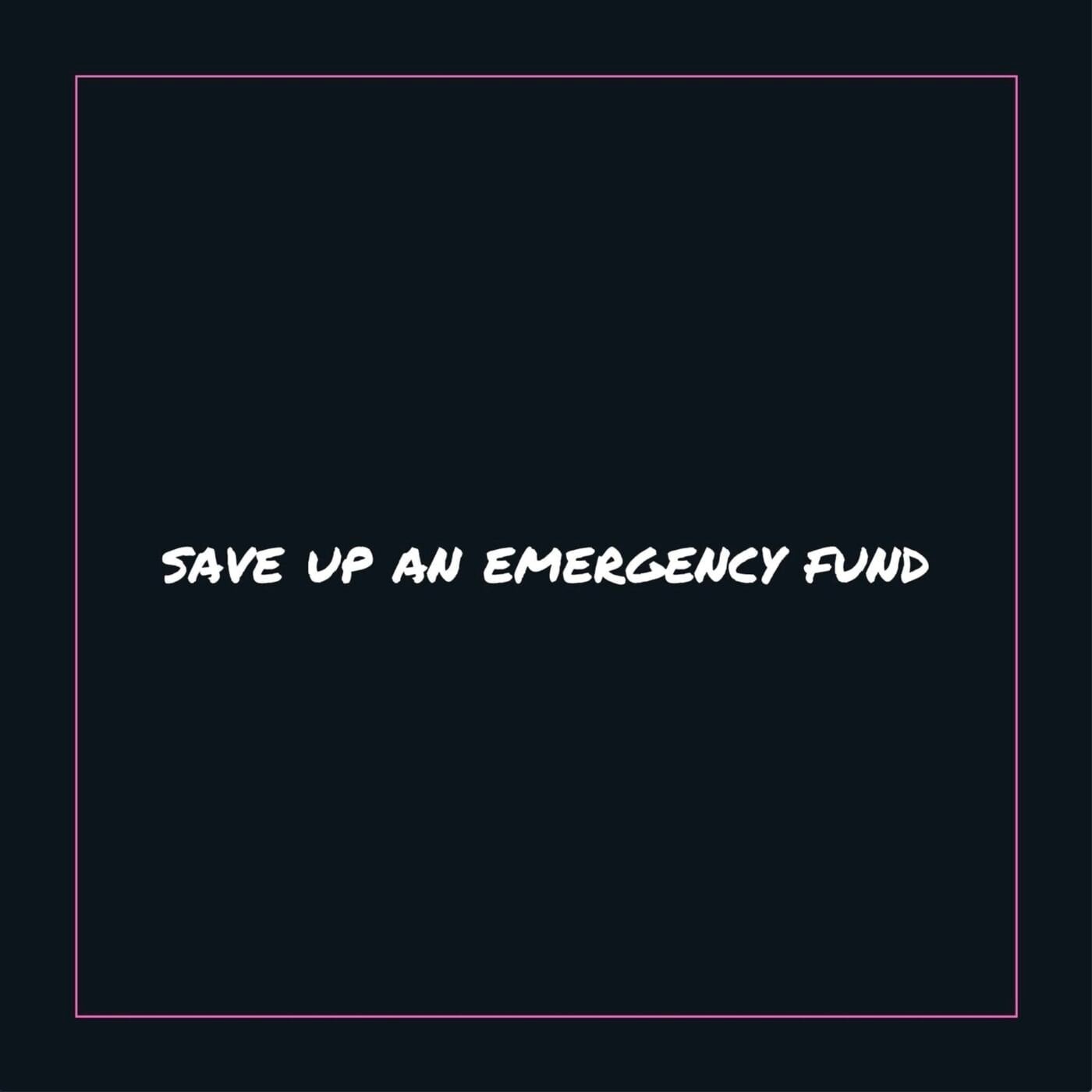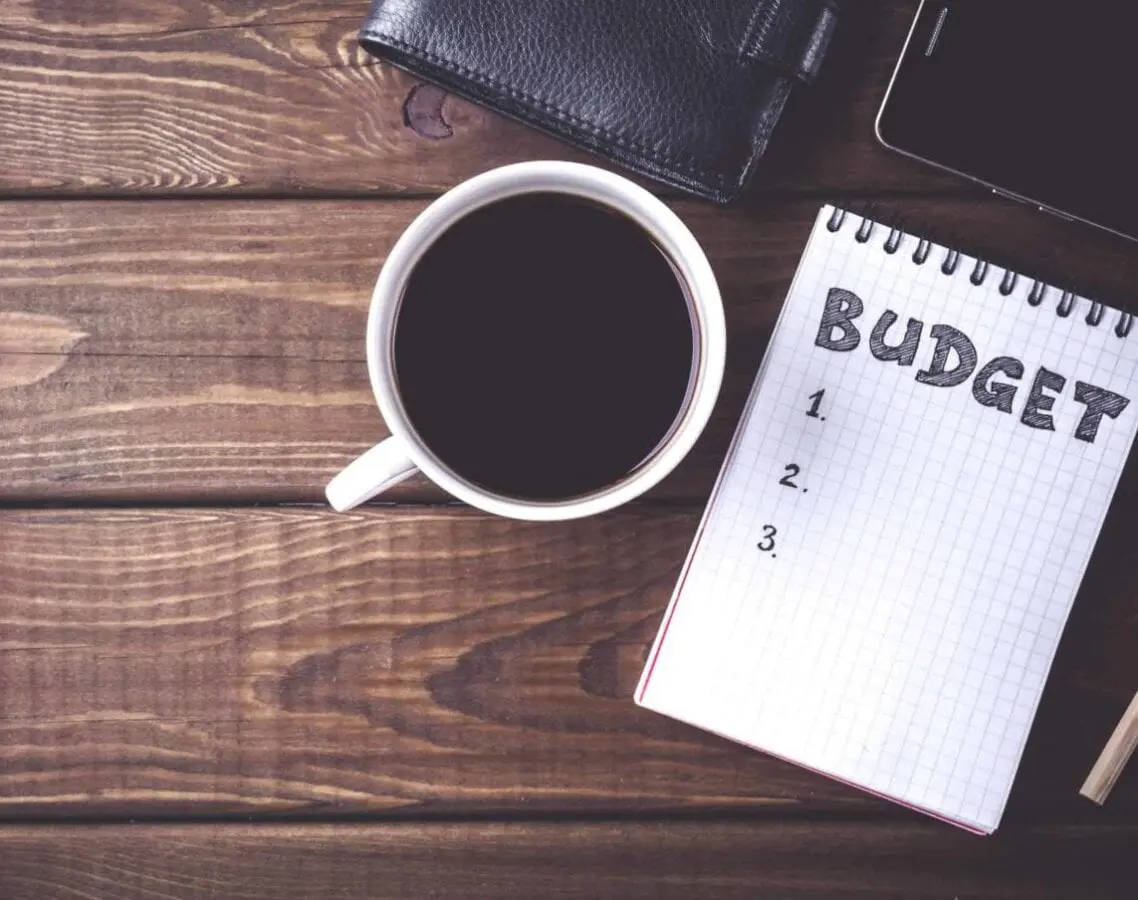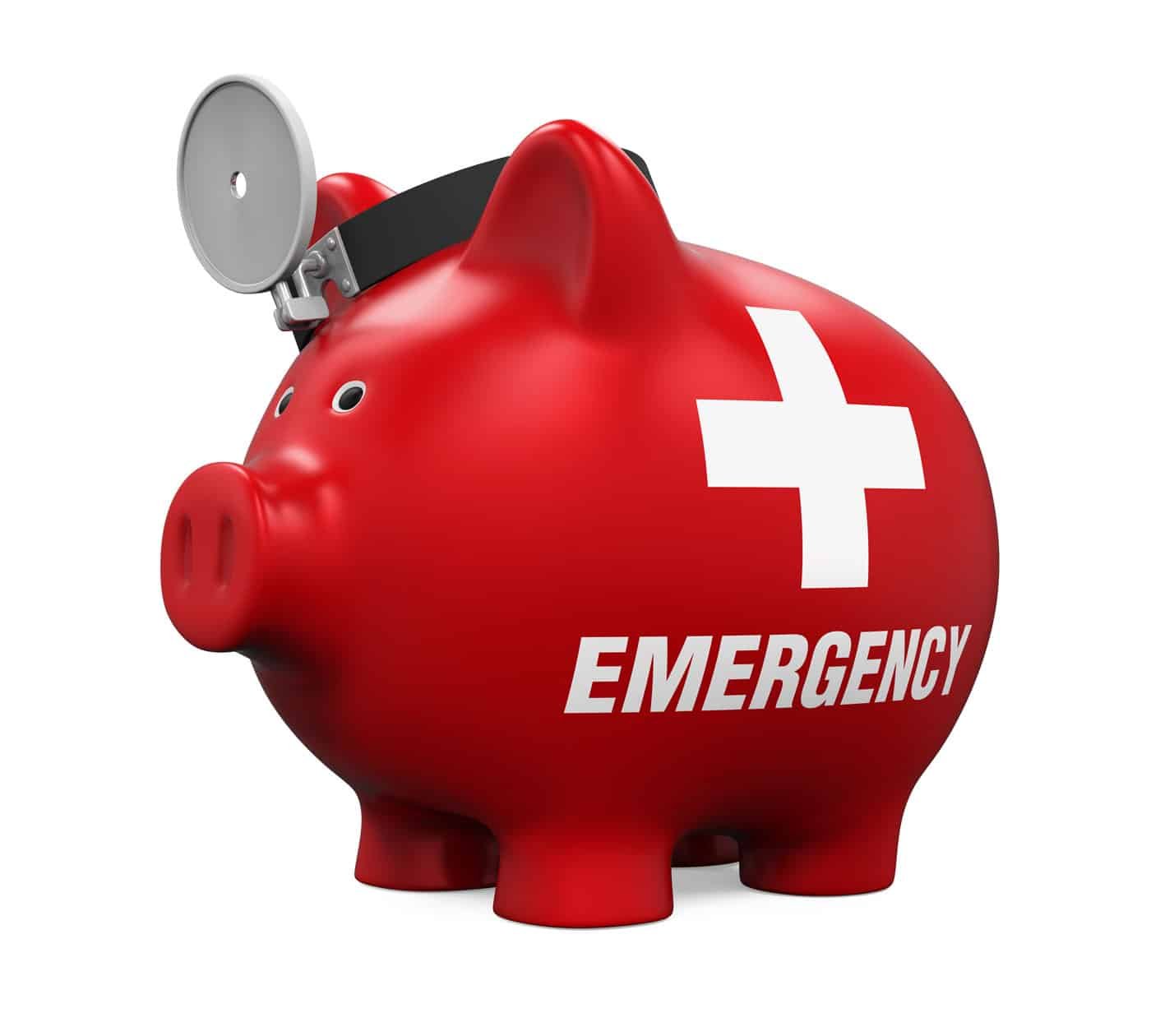
How anyone can afford to save for an ’emergency fund’ living in the city on a modest budget is beyond me.
Don’t get me wrong, when you are living from paycheck to paycheck. Every month has its emergencies. A bill your housemate has been sitting on for months. A birthday you hadn’t quite budgeted for.
However, in a world where restructuring and redundancies are all too common, saving for a real-life ’emergency fund’ is something we all need to consider, even on a budget.
What exactly is an emergency fund?
According to Investopedia, an emergency fund is an account used to set aside funds needed in the event of a personal financial dilemma, such as the loss of a job, a debilitating illness or a major expense. The general expectation is to have at least 3 months of essential expenses squirrelled away in a current account for an emergency. Who can save this though when living in the city? Especially when your salary only just gets you through to the next payday.

The 50-30-20 rule of thumb for budgeting
Harvard bankruptcy expert Elizabeth Warren and her daughter Amelia Warren Tyani coined this phrase in the book they co-authored ‘All Your Worth: The Ultimate Lifetime Money Plan’.
“Poverty taught me,” she says, candidly. “It was the school of hard knocks“
Elizabeth Warren, one of the top experts on bankruptcy, is quite impressive. An American academic and politician, she told Elle Magazine, “When any hard hit comes—whether it’s divorce, a medical problem, someone in your family has an emergency—having savings means there are options. Having debt means you’re already flat against the wall, and now it’s just going to get harder.”
So let’s have a look at this 50-30-20 rule…
Use your salary take-home pay as a starting point. Grab your phone/calculator and divide it into the three sections below. This way you can see how much you have to save each month.

So let’s have a look at this 50-30-20 rule…
Use your salary take-home pay as a starting point. Grab your phone/calculator and divide it into the three sections below. This way you can see how much you have to save each month.
50% is how much you need to live on. Think rent, bills, travel to work, and food.
30% is how much you can spend on your wants. So anything, not an essential need.
20% is how much to spend on savings and debt repayments. Minimum payments are considered needs, so 20% is set aside to overpay your debts and to save.
It’s stuff like this which put me off ever saving. Do they know that rent and household bills in London count for approximately 1/3 of my salary? My minimum payments alone account for nearly 20%.
So, I know just how difficult it is to save. I feel like I have tried everything. Spent hours putting my annual budgets into spreadsheets. Opening a savings account, only to take out whatever I had saved at the end of the month to cover the next month’s emergencies—or taking cash out each week. Only to spend that on top of putting all my weekly expenditures on my cards.
Changing your mindset
Savings and pensions were those grown-up money things I delayed getting around to for as long as possible. When work said they would match my pension contributions, I set one up with the lowest amount possible so as not to be seen as completely irresponsible. I resented that money going out of my account too as for savings. I had enough, or so I thought. Not enough I found out to cover a real-life emergency.
I always thought it an old-fashioned notion that you needed to save for retirement. I had it all figured out that I would be a high-earner, with lots of money in the bank, a nice house, with nice things, by the time I retired. So compromising on saving for my future to invest in the here and now seemed to me like, err commonsense.

Beware of little expenses
A small leak will sink a big ship
Never in my wildest dreams did I entertain the idea that I could save for an ’emergency fund’. Everyone told me to pay off my debts first and then save later. Great advice. Just not for when an emergency happened!
When you work hard in the city and every day brings its stresses, a cheeky drink helps to relax, and it’s a way of catching up with friends and colleagues. Invest in a spending app and see how much these tipples cost you at the end of the month.

Top Tips:
Cancel all direct debits and standing orders
except for anything considered a ‘need’ so keep rent, household bills, and essential food items. Make sure all essentials go out as soon as your salary hits your account
Adopt the 50-30-20 budgeting rule
Forecast your budget now for next month. Put the 20% savings on an immediate bank transfer so that on payday you don’t even see this touch your bank account
Pay your debts off first but save.
The last thing you want to do is save when you have credit cards that need paying and mounting debts. What I will say is controversial, but work out how much you can save. Set up an account you can’t easily access and siphon this off each month, so you start building up your emergency fund
Use a spending app!
Download this now to track where your money is going if you haven’t already. I can’t stress how much this helps work out where your money goes each month
Be mindful of those little expenses.
The coffee on the way to work. The bottle of wine on the way home. Sometimes we need these things, but sometimes we can do without them!
Put any important dates for March in your calendar, so you know what I need to account for (birthdays, social gatherings)
Good luck!
Let us know if you have top budgeting tips in the comments below.
“Do not save what is left after spending, but spend what is left after saving”
Warren Buffet

